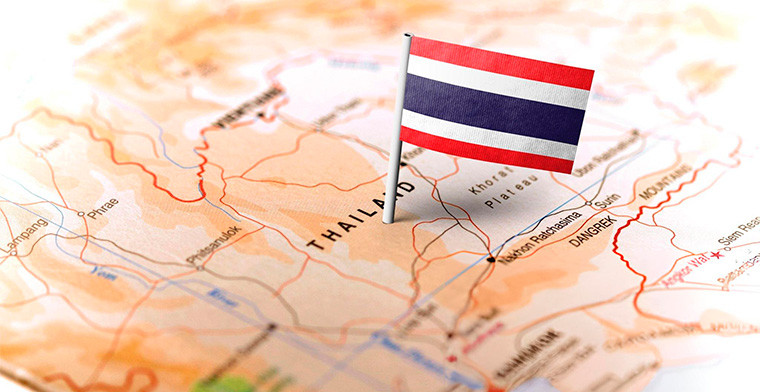The history of legal gambling in Thailand
Tuesday 21 de January 2025 / 12:00
2 minutos de lectura
(Bangkok).-The kingdom first hosted state-run casinos in 1938, but its previous experiments with taxable gambling did not go well

The current push to legalise casinos in Thailand hides the fact that the country already has "legal gambling establishments" – despite gambling being a punishable crime under the Gambling Act of 1935.
This is because opening gambling venues or hosting activities that involve betting is permitted under the law in certain circumstances.
The law divides gambling into two categories: A and B.
Category A covers universal forms of gambling such as lotteries, card games, dice games, and slot machines. Exceptions to the ban on these gambling activities can be made by royal decree.
Category B includes traditional games such as bullfighting, cockfighting, fish fighting, and horse racing. Gambling is permitted at these events, providing they are registered and properly organised. Category B also covers boxing matches, boat races, and lotteries. Authority to grant permits for Cat B gambling typically lies with administrative bodies or the Interior Ministry.
Evidence of legal gambling is widespread across Thailand. In rural areas, bullfighting and cockfighting arenas host high-stakes contests, with prized fighting roosters sometimes worth millions of baht.
Thailand is also no stranger to state-sanctioned casinos, which have been legalised two times since the Siamese revolution of 1932.
The first time was in 1935, via a Royal Decree under Article 4 of the Gambling Act that is still in use today. This decree marked the introduction of state-taxed gambling establishments in Thailand under the Finance Ministry.
The rationale was economic, aiming to replace revenue from the scrapped “Ratchupakarn Tax” – a levy imposed on Thai men who did not serve in the military or perform labour services.
A first casino opened in 1938 during the administration of Field Marshal Plaek Phibunsongkhram. A pilot casino was launched in Hua Hin but closed after a few days due to its unsuccessful trial period.
There are unverified reports that casinos also opened in other provinces for short periods.
The second legalisation push occurred in 1945 during the administration of Prime Minister Khuang Aphaiwong, around the end of World War II. Grappling with severe inflation and an economic crisis, the government revived the Gambling Act of 1935 and established casinos, starting on February 3, 1945. However, the operation lasted less than three months – 82 days in total – before the casinos were shut down on May 10, 1945. During that time, casinos opened in Bangkok and five other provinces: Hua Hin, Lopburi, Phitsanulok, Nong Khai, and Betong (Yala).
In just 82 days of operation, the casino in Bangkok alone generated 12.94 million baht – 22.8% of the country’s monthly revenue at the time. Nationwide, casinos brought in 24.13 million baht, showcasing their immense profitability. However, the venture failed amid reports that many citizens gambled away their savings, falling into debt and even resorting to suicide.
In an echo of the current push to legalise gambling, the casinos charged high entrance fees and barred children. However, underage individuals reportedly sneaked in, while other customers borrowed money to gamble, leading to widespread financial ruin. These factors forced the government to shut down the casinos.
While casinos were discontinued, the Gambling Act remained in effect, permitting betting on the state lottery and traditional games.
However, Thailand looks set to take another gamble on legal casinos after the Cabinet last week approved the draft Entertainment Complex Business Act. The Pheu Tha-led government expects casino-resorts to generate 12-39 billion baht in annual tax revenue while creating over 9,000 new jobs.
Categoría:Legislation
Tags: Sin tags
País: Thailand
Región: Asia
Event
iGaming Club Conference Cancun
24 de November 2025
Levon Nikoghosyan Confirms iGaming Cancun’s Success and Future LATAM Expansion
(Cancun, SoloAzar Exclusive).- The vibrant energy of iGaming Cancun has set the tone for a new chapter in the Latin American iGaming industry. Levon Nikoghosyan, CEO and Co-Founder of AffPapa and iGaming Club, shared his enthusiasm for the event’s debut in Mexico, highlighting its impact on the regional market and the company’s ambitious plans for the future.
Thursday 04 Dec 2025 / 12:00
iGaming Club Cancún 2025 Concludes Successfully with Strong Connections in Its First LatAm Edition
(Cancun, SoloAzar Exclusive).- iGaming Club Cancún 2025 came to a close last night with a comprehensive experience of conferences, networking, and the AffPapa iGaming Awards LATAM gala, consolidating itself as a unique space for operators, affiliates, and providers in the region.
Thursday 27 Nov 2025 / 12:00
iGaming Club Cancún 2025: Affiliates, Operators, and Innovation Take Center Stage on Final Day
(Cancun, SoloAzar Exclusive).- The second and final day of iGaming Club Cancún 2025 unfolds today, bringing together operators, affiliates, and select B2B providers in a unique networking and conference environment that highlights the evolving dynamics of the Latin American iGaming market.
Wednesday 26 Nov 2025 / 12:00
SUSCRIBIRSE
Para suscribirse a nuestro newsletter, complete sus datos
Reciba todo el contenido más reciente en su correo electrónico varias veces al mes.




















